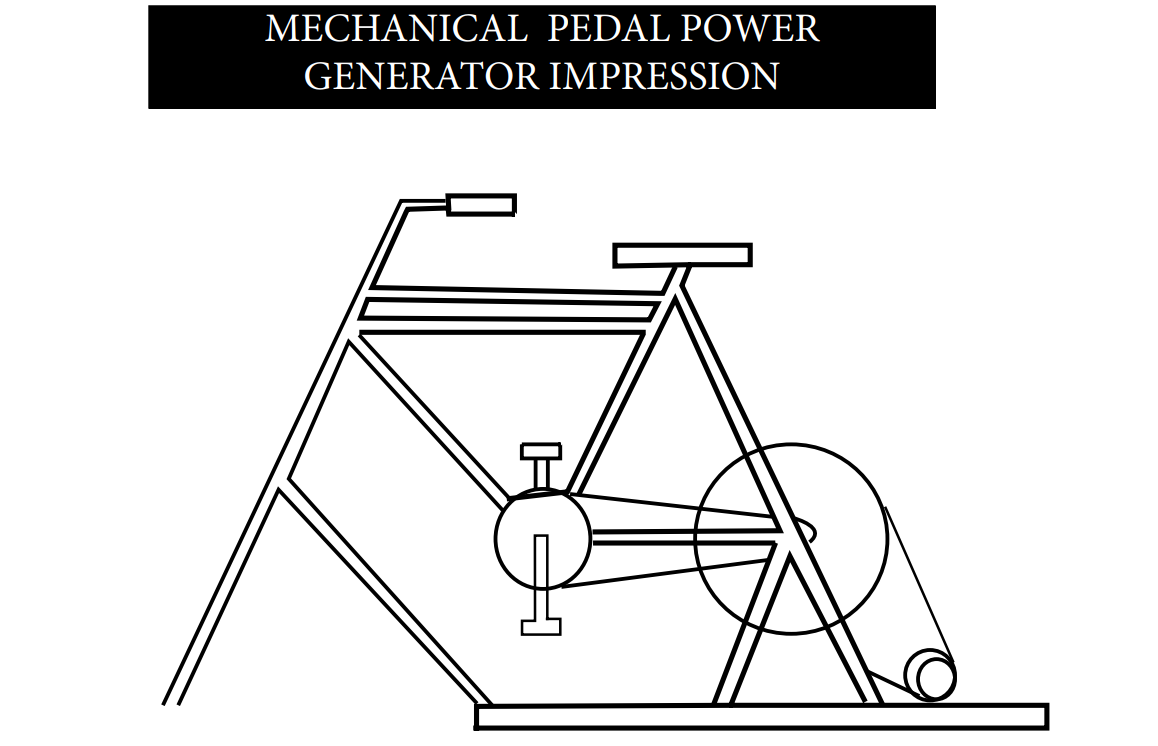This project involves engineering students and IEEE Volunteers coming together to utilize their engineering to design and fabricate a bicycle pedal power generator which in turn shall be piloted in one community. The purpose of the generator is to reduce ill health and environmental degradation as well as supply reliable and affordable power. Further, this project enables engineering students to apply their engineering skills within their communities.
In Uganda, this project if implemented can be replicated and used in the villages as a useful electricity source for a small family where the family members themselves can charge the battery by paddling for a short period of time. This will not only provide electricity when needed but also provide a useful way of physical exercise for them. And due to the low initial cost and very low maintenance cost, the wide-scale application of the ‘Paddle Powered Generator’ can be a suitable source of renewable energy.
First, human energy is transformed into mechanical energy by means of pedaling. This mechanical energy is represented in the form of the rotation of the chain sprocket system. Second, the mechanical energy in the form of rotation is converted to electrical energy by the alternator which is connected to the chain-sprocket and belt-pulley system transmission system by means of a pulley. In the third stage, the electrical energy is converted to chemical energy in the batter for future use.
EPICS in IEEE (Fischer-Mertel Community of Projects) granted this team $4,700 to complete this project and deploy a prototype in the community.
After completion, the project will remain under the engineering department of Buganda Royal University whereby it will continue generating power for use and engineering students can continue learning from it. It will be the obligation of the university engineering department to mobilize and deploy the required resource for its continued maintenance. The projected lifespan after completion is expected to be 10 years. For more information on this project, check out our latest article Harnessing Clean Energy For Community Benefit and Sustainable Development.

